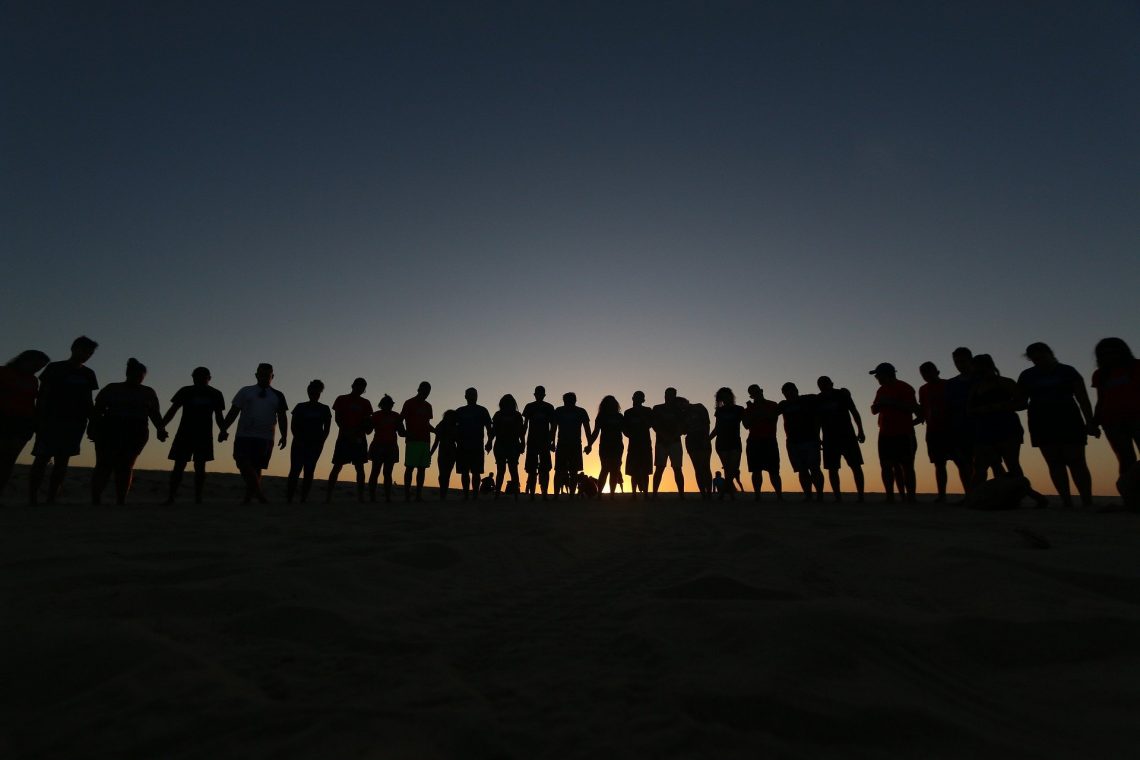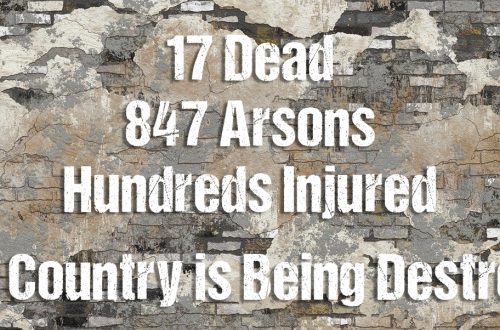Strategy for Building Local Networks

By Jude Rose
It’s 2022, and it’s time to have a plan. We face uncertain times, but that doesn’t mean there’s nothing we can do, especially when we work together. Building a local network is one of the aspects of our reality we can control. Many of us have realized the importance of building relationships with those around us. We don’t have to face the future alone, and we don’t need the federal government to provide for us, we can rely on each other! But where do we start?
When it comes to building a local network, being shy is not an option! It’s time to put yourself out there and discover people you can align with, and potentially depend on in the future. Forget politics for just a moment. We are all human beings with the same basic needs, and one day we may need to work together in order to meet those needs. Outside of social media and the internet forums is a whole community available for you to tap into.
One of the many benefits of building a local network is feeling secure about the future. When we come together and get to know each other, we can lean on the community in times of crisis. Getting to know the community around you and building a sense of trust at the very least can bring you peace of mind. There are so many ways to begin networking locally. Imagine you’re creating your own town. What would that town need to operate? What kinds of people need to be available for others to rely on?
Consider:
• A medic, or someone well versed in first aid and emergency medical procedures
• A hunter, who knows how to use an array of weapons and hunt local game
• A chef/butcher, someone who understands how to prepare local wildlife for consumption
• A gardener, skilled in growing crops and recognizing local plants
• A builder, an expert in construction and/or architecture that can design and provide sound shelter
Where do you find skilled people around you? How do you meet them? How do you talk to them?
Sometimes your job is the best place to start. Try attending work related networking events and get to know your coworkers. If you know them well enough, you can ask them about hobbies and networks of their own. In other words: who they know and what they do outside of work. Remember that it helps to be willing to help first. Helping others first can start you off on the right foot and open the door to trust. Learn how you can add value to the relationship, making a point to ask questions and listen with intention.
Outside of work, pay attention to local events, clubs, and public meetings. If you go to church, make a goal to start approaching people you’ve never met, and spend some time getting to know them. If you feel you don’t have enough skills to offer, take a class at your community college or local recreational center. Classes are a great way to meet others interested in self improvement, and it’s easy to bond over a shared hobby. Cooking classes are an amazing place to start!
Here are some other ideas for ways and places to meet people:
• PTA Meetings: If you have children, getting involved in the school meetings and Parent-Teacher Association will instantly give you a network of other parents. Here, you can inspire others to start a tree of communication if there isn’t one already. Getting to know the parents of your child’s friends is also a good place to start.
• City Council Meetings: Get involved in what’s going on in your city by attending council meetings. Not only is this empowering, it’s a wonderful way to meet other people who care about the community. Strike up conversations with those around you about local issues, and see if there’s a potential for any valuable relationships.
• Gun Clubs: For those who love their second amendment, the best place to meet like minded people is at your local shooting range, where there may or may not be a club for other local gun owners. If there isn’t a club, perhaps one could be started.
• Gardening Clubs: Your local plant nursery may have information on local gardening clubs, where you can meet others interested in growing their own produce and becoming self-sufficient. Exchange tips and tricks for growing your favorites!
• Farmers Market: A quick and easy way to discover locals who have the skill to sell their own produce and products. Get to know the owners of your favorite booths by asking them questions about their process! Visit them consistently, support them by buying their goods, and they may even start considering you a friend!
Starting your own group
Once your list of contacts has grown, another option is to start a club of your own based on a skill or interest. Be sure to iron out the details before you present them. What will the club revolve around? Will you have your meetings at your home, at a public place like a park, or will you rent out a space? How often will you have them? Which contacts will you invite, and will they mesh well?
Reach out to those you think might be interested in attending club meetings with a date and time in mind. Present your idea with confidence and enthusiasm, and tell your friends you’d love for them to be there! Since the pandemic, human interaction has become an obvious necessity. Isolation can be unhealthy! Starting a club is a great way to connect with the people you know, as well as introduce them to others with the same interest.
Here are some ideas for reasons to get together once a month or more:
• Book Club: We could all stand to read more books! Nothing sparks a conversation like a good story, fiction or nonfiction. Everyone can bring or suggest a certain book, and vote on what they’d like to read first, repeating the process after each book is done.
• Baking Club: Depending on your skill level, a baking club might be like an episode of the British Bake Off, or…Nailed It. Either way, there is room to have fun and swap recipes of your favorite homemade baked goods. Learn how to bake something yummy for your new neighbors to welcome them to the community together!
• Big Batch Cooking Club: This is a great way to provide for each other and save money. Find a recipe that can be made in a large batch, like a pasta dish, soup, chili, casserole etc. Everyone splits the grocery list, and brings whatever pots/pans or Tupperware is needed. Bring it all together to bond over cooking, and everyone takes home their share!
• Fitness Club: If you have friends who love working out, but none of you can afford a gym membership, a fitness club would help you motivate each other! Get together and follow workout videos on YouTube together, go for a run, hike, or teach each other exercises you already know. Bump some music and have fun!
Plan With Your Neighbors
Does your neighborhood have a neighborhood watch? Do you know any police, or know someone who does? Find out through your city council or website how safe your neighborhood is. What is crime like in your area? Who are the closest sex offenders? Be aware of your local crime statistics. Make a readiness plan with neighbors, offering what you can in case of emergency. Check in with them on a semi-regular basis. A plate of homemade cookies as an offering of friendship could help sweeten the deal.
Volunteering
Love helping people? Give back to your community by serving adults or children with special needs. Become a tutor or mentor through programs like Big Brother or Big Sister. Volunteer at your local soup kitchen or women’s shelter. You may need to do some light research to find an organization you’d like to participate in. Get to know your fellow volunteers and find out what else they do. Consider inviting them to a club/group you’re a part of.
Learn About Prepping Together
While some preppers value their privacy, others are willing to share some tips and tricks when it comes to preparing for emergency scenarios. The good news is many people today are interested in off grid living and preparedness. There are several ways to find friendly preppers near you:
Preppergroups.com offers forums with people all around the world and many in the United States looking for advice and possible teammates for their future life.
MeetUp.com gives you the opportunity to search for like minded groups in your state using the keyword ‘preppers.’
Survivalistboards.com is another forum site for those in search of advice and resources.
Be sure to check your community for classes on preparedness, where you’ll be able to connect with others who are interested. If the search fails, start your own prepping group with family and friends! Grab a few choice books about different areas of prepping, find some YouTube videos, and see what everyone is interested in learning together. Food preserving, building bug out bags, and learning how to build a shelter are all activities that can be done together.
Finally, remember to make connections with care and intention. Don’t just scope out people for their skills or resources. Be willing to offer help first, listen mindfully, and build a sense of trust with those around you. If you’re consistently trustworthy and helpful, quality connections will be easier to make. Remember to be the kind of person you would want to trust before you go looking for others to trust. Getting to know people on a personal level will help you understand how to add value to the relationship, or what you can do to help them.
While it’s difficult to say what the future holds, building a local network is a timeless and valuable skill that knits a community together. Building a local network will bring you peace of mind, knowing that you have connections to rely on for multiple scenarios. These connections should inspire you to not only improve your personal skills, but increase your empathy for those around you. Together we don’t have to fear the future.

Subscribe to Corey’s Digs so you don’t miss a Dig!











4 Comments
Elfriede Lentner
What does anyone here think of the idea of a Platonist Club, that’s in the vein of Plethon and the Golden Chain, about which he wrote?
http://opsopaus.com/OM/BA/Plethon/
http://opsopaus.com/secret-texts.html
https://www.deviantart.com/puretassel/art/Sample-Platonist-Club-Application-Guidelines-930617291
It could be an alternative religious or spiritual group for men and women of Indo-European-descent, who don’t like the Abrahamic religions like the Noahide Laws and Mormonism, but don’t like Antitheism, Satanism, Technocracy, Transhumanism and harmony-destroying Communism either.
TiggerPaw
Networking for us here is quite difficult as we live in a “blue” city and “blue” county. Anything not of the narrative does not survive long. So we must choose very carefully. We are hoping that dissatisfaction is growing because of the enormous increase in homeless people and panhandlers on many street corners. We are down more than 100 police officers in the city police, and just hit the news a week ago for a major increase in crime rates here. Jus’sayin’ it will be difficult to build a network. Gotta be careful of the “moles” who could twist what we are trying to do.
Alexis
I also live in a “blue” city. If I’m looking for people who live their faith in God the way I want to, I have to be very discerning. The list of people I’d confide personal issues relating to morality or faith is almost zero here. However, my city has a lot of people interested in things like gardening, organic farming and urban agriculture. My network at the moment is small but there are many opportunities for local connections if what I’m interested in is being able to find food when/if grocery stores get emptied. Just walking around my neighborhood is amazing. Without trying at all I start to have acquaintances with people.
I do find that I look beyond my local community for spiritual sustenance, real news, etc. I spend a lot of time in prayer and some time each day reading the Bible. A book I’m currently reading with someone else is called “Life Without Lack” by Dallas Willard.
FL Prepper
Somebody showing up at my Locked Gate with cookiess, may be trying to poison me. Never accept free food.
Did you also accept the Free Jab? TRUST NO ONE!! The naive get dooped and will be the first to die in SHTF. Only the weak need Group think dependency and wil be a dead weight anchor in your group. The strong and prepared are already self-sufficient and can do all those tasks. Get busy and learn more skills and stop thinking sheep herd mentality group think. Look what group think can do to your OPSEC. The weak will rat on you for a plate of cookies.